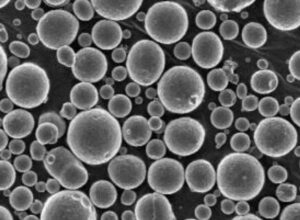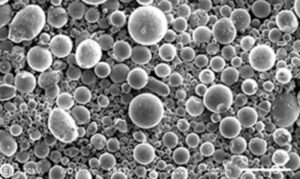1. Introduction
Titanium alloys are known for their exceptional strength, lightweight nature, and corrosion resistance. These properties make them highly sought after in various industries, such as aerospace, medical, and automotive. One such titanium alloy that stands out is Ti6Al4V powder, which exhibits outstanding characteristics and has revolutionized manufacturing processes. In this article, we will delve into the world of Ti6Al4V powder, exploring its properties, applications, manufacturing processes, and factors to consider when using it.
2. What is Ti6Al4V Powder?
Ti6Al4V powder is a titanium alloy composed of 90% titanium (Ti), 6% aluminum (Al), and 4% vanadium (V). It is also known as Grade 5 titanium or simply Ti-6-4. The powder form of this alloy enables its application in various manufacturing processes, allowing for the production of intricate and complex components with high precision.
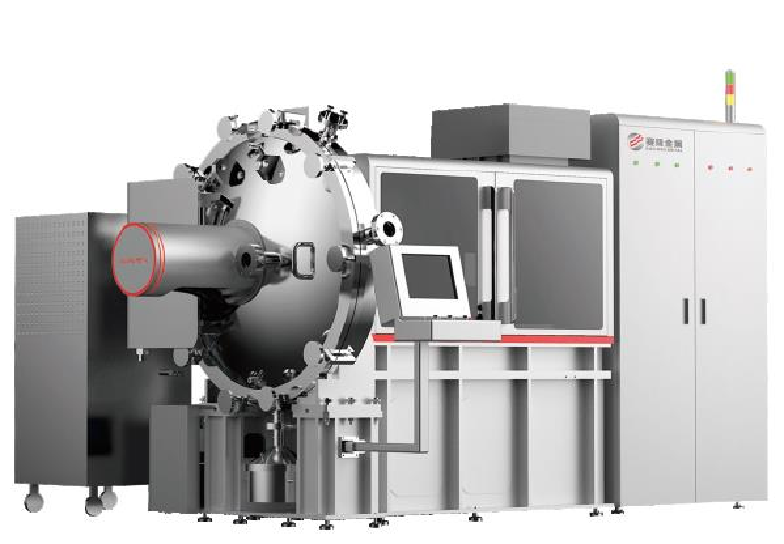
3. Properties and Benefits of Ti6Al4V Powder
3.1 High Strength-to-Weight Ratio
One of the remarkable properties of Ti6Al4V powder is its exceptional strength-to-weight ratio. This alloy is significantly lighter than steel while maintaining comparable strength. This characteristic makes it a preferred choice in industries where weight reduction is critical, such as aerospace and automotive manufacturing. The lightweight nature of Ti6Al4V powder enables improved fuel efficiency, enhanced performance, and increased payload capacity.
3.2 Corrosion Resistance
Ti6Al4V powder exhibits remarkable corrosion resistance, making it suitable for applications in harsh environments. The presence of aluminum and vanadium in the alloy forms a protective oxide layer on its surface, preventing the material from deteriorating when exposed to corrosive elements. This property is highly advantageous in marine, chemical processing, and oil and gas industries, where components are subjected to corrosive conditions.
3.3 Biocompatibility
Ti6Al4V powder is biocompatible, meaning it is well-tolerated by the human body and can be used in medical and dental implants. Its biocompatibility stems from the ability of titanium to form a biologically inert oxide layer, allowing for proper integration with surrounding tissues. This feature has led to successful applications in orthopedic implants, dental implants, and prosthetics, improving the quality of life for many individuals.
3.4 Heat Resistance
Another notable property of Ti6Al4V powder is its excellent heat resistance. It can withstand high temperatures without losing its structural integrity or experiencing deformation. This characteristic makes it suitable for applications in gas turbines, exhaust systems, and other components exposed to elevated temperatures.
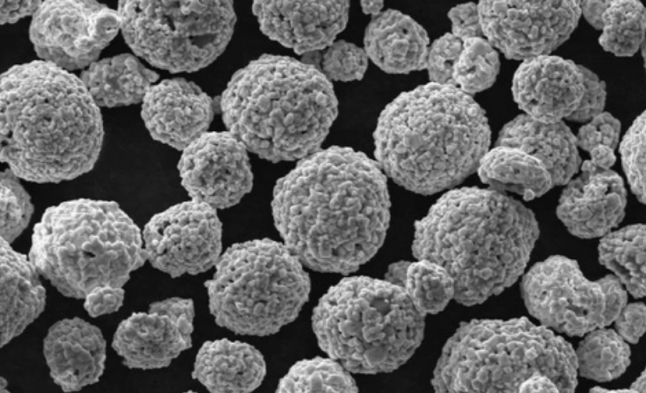
4. Applications of Ti6Al4V Powder
4.1 Aerospace Industry
The aerospace industry extensively utilizes Ti6Al4V powder for various applications. It is used in the production of aircraft components, such as airframe structures, landing gear, engine components, and fasteners. The lightweight and high strength properties of Ti6Al4V powder contribute to fuel efficiency, increased aircraft performance, and overall weight reduction.
4.2 Medical Industry
Ti6Al4V powder has found significant applications in the medical field due to its biocompatibility and excellent mechanical properties. It is used in the manufacturing of orthopedic implants, dental implants, surgical instruments, and medical devices. The compatibility of Ti6Al4V powder with human tissues allows for successful integration, reducing the risk of rejection or adverse reactions.
4.3 Automotive Industry
In the automotive industry, Ti6Al4V powder is employed to enhance performance and reduce weight. It is utilized in the production of engine components, suspension systems, exhaust components, and chassis structures. By using Ti6Al4V powder, manufacturers can achieve weight reduction, leading to improved fuel efficiency and lower emissions.
4.4 Sports Equipment
Ti6Al4V powder has also made its way into the realm of sports equipment manufacturing. It is used in the production of bicycle frames, golf club heads, tennis rackets, and other sporting goods. The lightweight nature of the alloy enables athletes to exert less energy during activities, resulting in enhanced performance and reduced fatigue.
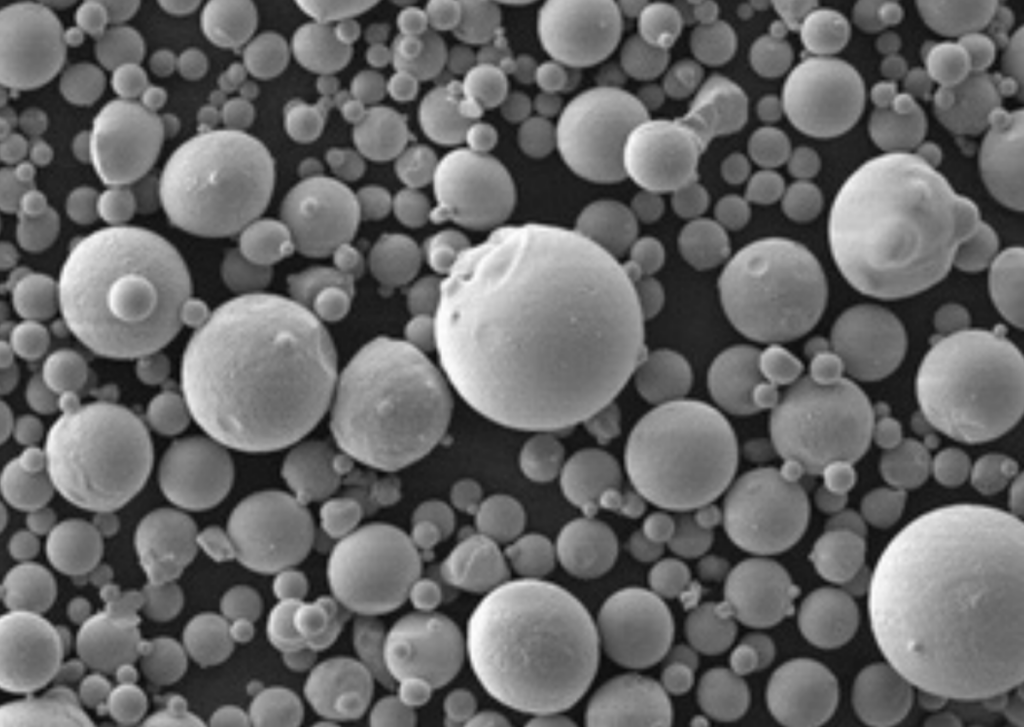
5. Manufacturing Processes for Ti6Al4V Powder
Ti6Al4V powder can be manufactured through various processes, each offering distinct advantages and characteristics.
5.1 Powder Metallurgy
Powder metallurgy is a widely used process for producing Ti6Al4V powder. It involves atomizing molten titanium alloy into fine droplets that solidify into powder particles. These particles are then compacted and sintered to create dense components with intricate geometries.
5.2 Electron Beam Melting
Electron beam melting (EBM) is an additive manufacturing process that utilizes an electron beam to selectively melt and fuse Ti6Al4V powder layer by layer. This process allows for the creation of complex geometries and precise control over material properties. EBM is particularly suitable for producing components with high mechanical strength and excellent fatigue resistance.
5.3 Selective Laser Melting
Selective laser melting (SLM) is another additive manufacturing process used to produce Ti6Al4V powder components. In SLM, a high-power laser selectively fuses successive layers of powder, creating fully dense parts. This process offers exceptional precision and enables the production of components with intricate internal structures and complex designs.
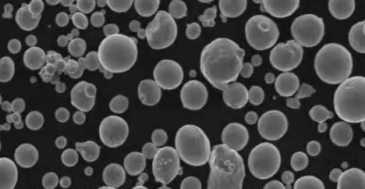
6. Factors to Consider When Using Ti6Al4V Powder
When working with Ti6Al4V powder, several factors should be taken into account to ensure optimal results.
6.1 Powder Quality
High-quality Ti6Al4V powder is crucial for achieving desirable mechanical properties and surface finish. The particle size distribution, morphology, and chemical composition of the powder can significantly impact the final product. It is important to source Ti6Al4V powder from reputable suppliers and carefully monitor its quality throughout the manufacturing process.
6.2 Powder Handling and Storage
Ti6Al4V powder is highly reactive in the presence of oxygen and moisture, which can lead to contamination and compromised properties. Proper handling and storage conditions, such as using inert atmospheres and sealed containers, are essential to preserve the integrity of the powder. Contamination prevention measures should be implemented to maintain the powder’s quality and ensure consistent results.
6.3 Equipment and Process Parameters
The selection of appropriate equipment and process parameters is crucial when working with Ti6Al4V powder. The manufacturing process, whether it be powder metallurgy, EBM, or SLM, must be optimized to achieve the desired mechanical properties and dimensional accuracy. Careful consideration should be given to factors such as laser power, scanning speed, layer thickness, and post-processing treatments.
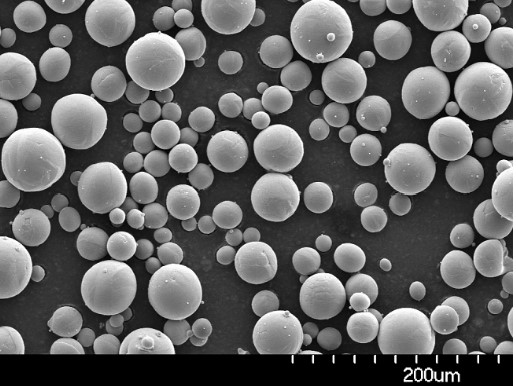
7. Future Developments and Research in Ti6Al4V Powder
As technology continues to advance, research and development efforts in the field of Ti6Al4V powder are ongoing. Here are some areas of focus for future developments:
- Alloy Optimization: Researchers are exploring ways to further enhance the properties of Ti6Al4V powder by fine-tuning the alloy composition. By adjusting the ratios of titanium, aluminum, and vanadium, it may be possible to achieve improved strength, corrosion resistance, and biocompatibility.
- Additive Manufacturing Innovations: Additive manufacturing processes, such as EBM and SLM, are constantly evolving. Researchers are working on improving the speed, precision, and scalability of these techniques for Ti6Al4V powder production. This includes advancements in machine design, laser technology, and process control systems.
- Surface Modification Techniques: Surface properties play a crucial role in the performance of Ti6Al4V powder components. Researchers are investigating surface modification techniques, such as coatings and treatments, to further enhance properties like wear resistance, bioactivity, and lubricity.
- Biomedical Applications: Ti6Al4V powder has already made significant contributions to the medical field, but there is ongoing research to expand its applications. Scientists are exploring new ways to utilize Ti6Al4V powder in areas such as tissue engineering, drug delivery systems, and regenerative medicine.
- Sustainability and Cost Reduction: As titanium alloys are valuable but costly materials, researchers are exploring methods to reduce the production costs of Ti6Al4V powder. This includes investigating alternative raw materials, optimizing manufacturing processes, and recycling techniques to minimize waste and increase sustainability.
- Structural Integrity and Fatigue Performance: Understanding the long-term structural integrity and fatigue performance of Ti6Al4V powder components is a critical area of research. Ongoing studies focus on improving the understanding of fatigue behavior, crack propagation mechanisms, and optimizing microstructure for enhanced durability.
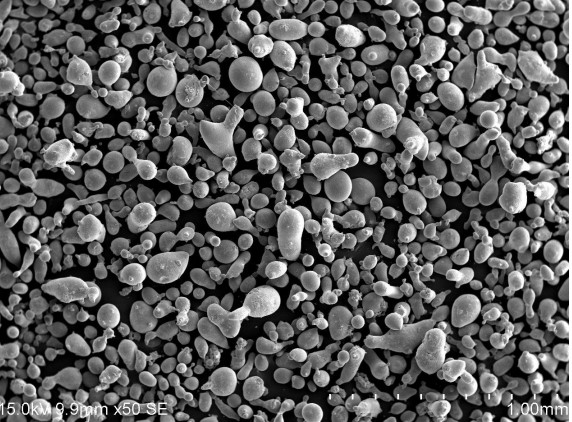
8. Conclusion
Ti6Al4V powder, a remarkable titanium alloy, has revolutionized various industries with its exceptional properties and benefits. Its high strength-to-weight ratio, corrosion resistance, biocompatibility, and heat resistance make it a preferred choice in aerospace, medical, automotive, and sports equipment applications. The ability to manufacture complex components using powder metallurgy, EBM, and SLM processes further enhances its versatility. As research and development in the field continue, we can expect to see further advancements in Ti6Al4V powder, leading to improved performance, cost-effectiveness, and expanded applications.
FAQs
Q: Is Ti6Al4V powder the strongest titanium alloy available?
A: Ti6Al4V powder is one of the strongest titanium alloys, but there are other titanium alloys with higher strength, such as Ti-6Al-4V-ELI and Ti-6Al-2Sn-4Zr-6Mo.
Q: Can Ti6Al4V powder be used for 3D printing?
A: Yes, Ti6Al4V powder is widely used in additive manufacturing processes, including 3D printing, due to its excellent properties and ability to produce complex geometries.
Q: Are there any limitations or challenges in using Ti6Al4V powder?
A: Ti6Al4V powder can be challenging to work with due to its reactivity, high melting point, and potential for contamination. Proper handling, storage, and process optimization are crucial to overcome these challenges.
Q: What industries benefit the most from Ti6Al4V powder?
A: Industries such as aerospace, medical, automotive, and sports equipment manufacturing benefit greatly from the properties and capabilities of Ti6Al4V powder.
Q: Is Ti6Al4V powder environmentally friendly?
A: Titanium alloys, including Ti6Al4V powder, are highly recyclable, which contributes to their environmental sustainability. Recycling processes help minimize waste and reduce the demand for new raw materials.
Additional FAQs: Ti6Al4V Powder
1) What particle size distribution is optimal for different processes?
- LPBF: 15–45 µm spherical; D10≈15, D50≈28–32, D90≈40–45 µm for flowability and packing.
- EBM: 45–105 µm spherical to suit higher preheat and beam energy.
- MIM/PIM: 5–20 µm with tight PSD for high solids loading.
2) How do oxygen and nitrogen levels impact properties?
- Interstitials increase strength but reduce ductility/fatigue life. AM-grade Ti6Al4V often targets O ≤ 0.13 wt% (ELI ≤ 0.13%) and N ≤ 0.05 wt%. Lower O/N improves elongation and fracture toughness, critical for implants and thin-walled AM parts.
3) Can reused Ti6Al4V powder be safe for critical parts?
- Yes, with controls: sieving, oxygen/nitrogen monitoring, PSD tracking, and defined reuse limits. Many workflows cap reuse at 8–12 cycles for aerospace/medical unless rejuvenated with virgin blends.
4) What post-processing is commonly required for AM Ti6Al4V?
- Stress relief, hot isostatic pressing (HIP), machining, surface finishing (grit blasting, chemical milling), and optional heat treatments (STA) to tailor alpha/beta microstructure for fatigue performance.
5) How does Ti6Al4V ELI differ from standard Grade 5 in powder form?
- ELI (Grade 23) limits interstitials (especially O) for higher toughness and better low-temperature ductility, preferred for biomedical implants; Grade 5 is common for aerospace/industrial components.
2025 Industry Trends: Ti6Al4V Powder
- Qualification momentum: More serial LPBF/EBM production lines qualified under aerospace specs and medical QMS for lattice implants.
- Efficiency gains: Multi-laser LPBF, better recoaters, and parameter libraries reduce build times 10–20% for common Ti6Al4V geometries.
- Powder genealogy: Mandatory O/N/H in-line analysis and lot genealogy tracking across reuse cycles; broader adoption of digital material passports.
- Lattice and surface innovation: Gradient lattices and engineered roughness improve osseointegration; fatigue-optimized scan strategies reduce defect-driven scatter.
- Sustainability: Increased take-back/recycling of Ti6Al4V swarf and oversize sieved powder with certified impurity control.
2025 Ti6Al4V Powder Snapshot (Indicative)
| Metric | 2023 | 2024 | 2025 YTD (Aug) | Notes |
|---|---|---|---|---|
| Global Ti6Al4V AM powder demand (kt) | ~10.4 | ~11.2 | ~12.1 | Aerospace + medical growth |
| Spherical Ti6Al4V price, AM-grade (USD/kg) | 180–260 | 170–240 | 160–230 | Scale + yield improvements |
| Typical O spec (Grade 23, wt%) | ≤0.13 | ≤0.12 | ≤0.11 | Tighter interstitial control |
| Average LPBF build rate improvement (%) | — | +8–12 | +10–20 | Multi-laser/process tuning |
| HIP utilization for critical AM parts (%) | ~72 | ~78 | ~82 | Fatigue-critical components |
| Reused powder share in AM builds (%) | 25–35 | 30–40 | 35–45 | With robust monitoring |
Sources:
- ASTM/ISO AM standards: https://www.astm.org, https://www.iso.org
- FDA device databases and AM guidance: https://www.fda.gov/medical-devices
- MPIF/SAE/AMS material specs (e.g., AMS 4999/7014 families)
- Industry trackers (Context/Wohlers-type reports), OEM technical notes (GE Additive, EOS, SLM Solutions)
Latest Research Cases
Case Study 1: Fatigue-Optimized LPBF Ti6Al4V Lattice Implants (2025)
Background: A medical OEM sought higher fatigue strength and faster osseointegration for acetabular cups.
Solution: Employed Grade 23 Ti6Al4V powder (D50 ~30 µm, O=0.10 wt%), scan-path tailoring with contour remelts, and HIP + surface blasting to RA 20–35 µm; gradient lattice (60–80% porosity).
Results: High-cycle fatigue life improved by 25–30% vs. prior design; 3-month RSA migration reduced by ~20% in pilot cohort; powder reuse extended to 10 cycles with O control ≤0.12 wt%.
Case Study 2: Multi-Laser LPBF Ti6Al4V Turbine Brackets with Reduced Distortion (2024)
Background: An aerospace supplier targeted cycle-time reduction without sacrificing tolerance.
Solution: Four-laser LPBF using gas-atomized Ti6Al4V Grade 5; synchronized stripe strategies, 200°C plate preheat, and adaptive scan ordering; post-build stress relief and local machining fixtures.
Results: Build time -18%; out-of-plane distortion -35%; first-pass yield +9%; tensile properties met AMS minima with elongation 12–14% after HIP.
Expert Opinions
- Prof. Amy J. Clarke, Professor of Metallurgy, Colorado School of Mines
- “For Ti6Al4V powder, interstitial control and consistent PSD across reuse cycles are as influential on fatigue scatter as the chosen heat treatment.”
- Dr. Martin Wegener, Head of Materials and Processes, EOS GmbH
- “Scan strategy and layer-wise heat management now rival machine hardware in driving surface quality and density for Ti6Al4V—especially on thin walls.”
- Prof. Paulo J. B. Bartolo, Chair in Advanced Manufacturing, University of Manchester
- “Functionally graded lattices in Ti6Al4V enable stiffness matching and mass reduction, but require robust simulation-to-build workflows and validated post-processing like HIP.”
Practical Tools and Resources
- ISO/ASTM 52907 (AM feedstock) and 52904 (LPBF of metals), ISO 5832-3 (implants—Ti alloys): https://www.iso.org
- ASTM F3001 (additive Ti-6Al-4V ELI), F2924 (PBF Ti-6Al-4V), F3302 (AM material specs): https://www.astm.org
- FDA Technical Considerations for Additive Manufactured Medical Devices: https://www.fda.gov/medical-devices
- NIST AM Bench datasets and porosity/melt pool studies: https://www.nist.gov/ambench
- Senvol Database for AM machine–material mapping: https://senvol.com
- OEM parameter/application notes (GE Additive, EOS, SLM Solutions, Renishaw)
- OSHA/NIOSH powder handling and combustible dust guidance: https://www.osha.gov, https://www.cdc.gov/niosh
Last updated: 2025-08-25
Changelog: Added 5 targeted FAQs; inserted 2025 trends snapshot with data table and sources; provided two recent case studies; included expert viewpoints; curated standards and resource links
Next review date & triggers: 2026-02-01 or earlier if ASTM/ISO/FDA guidance updates, major OEMs publish new Ti6Al4V AM qualifications, or market demand shifts >10% in aerospace/medical segments
